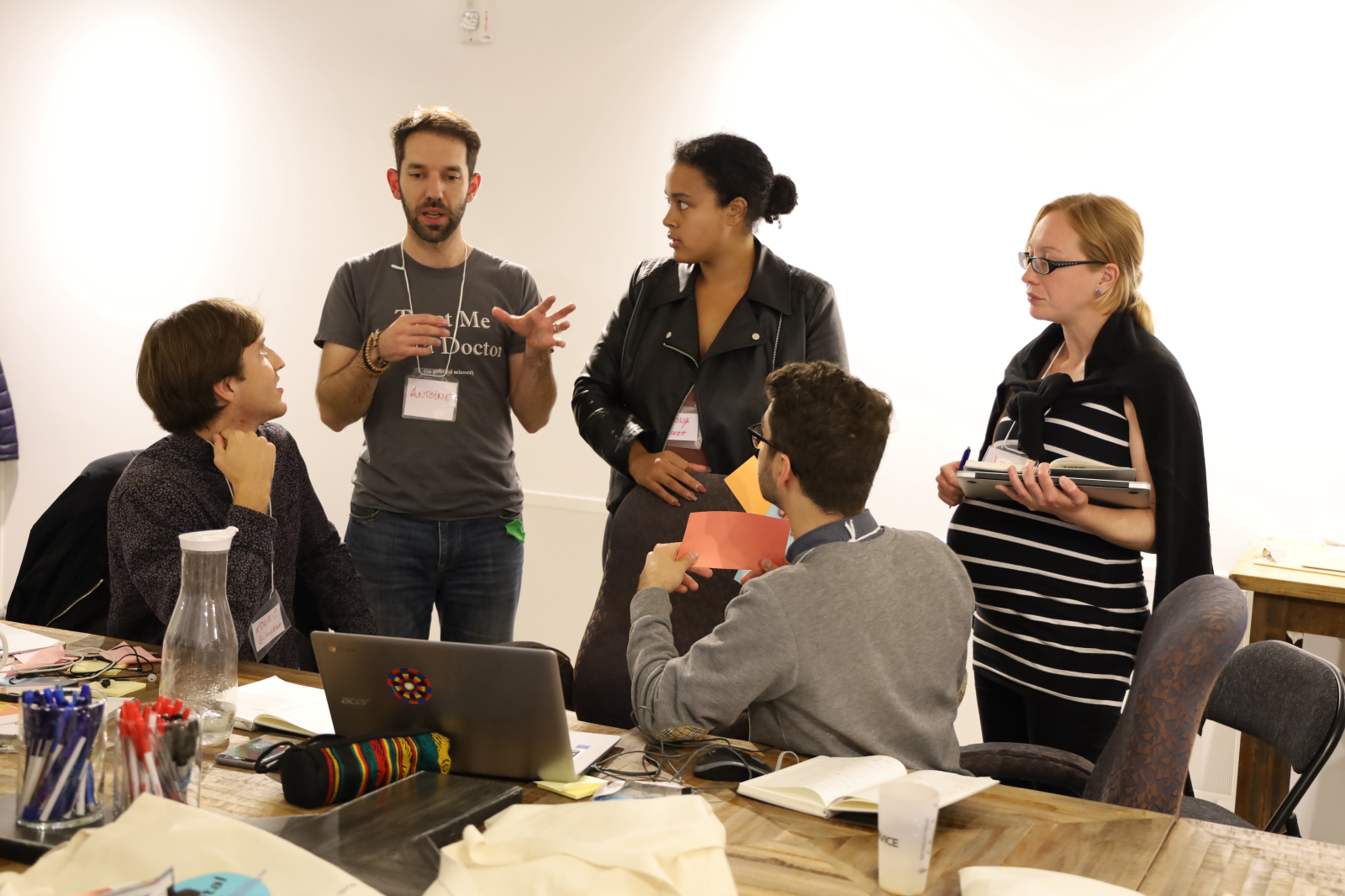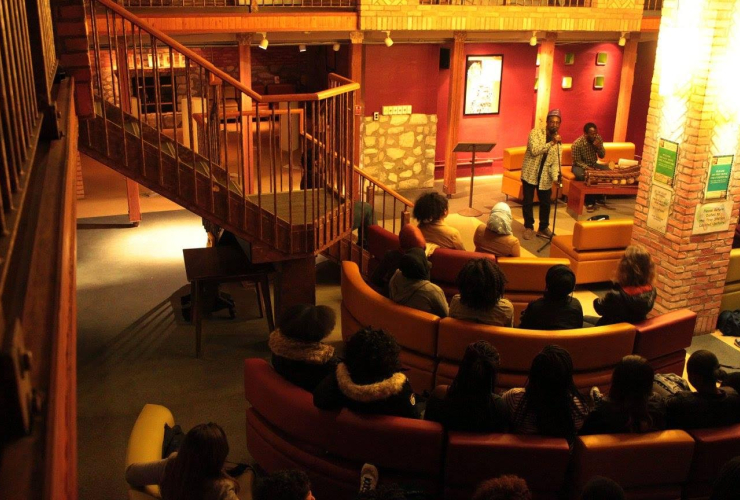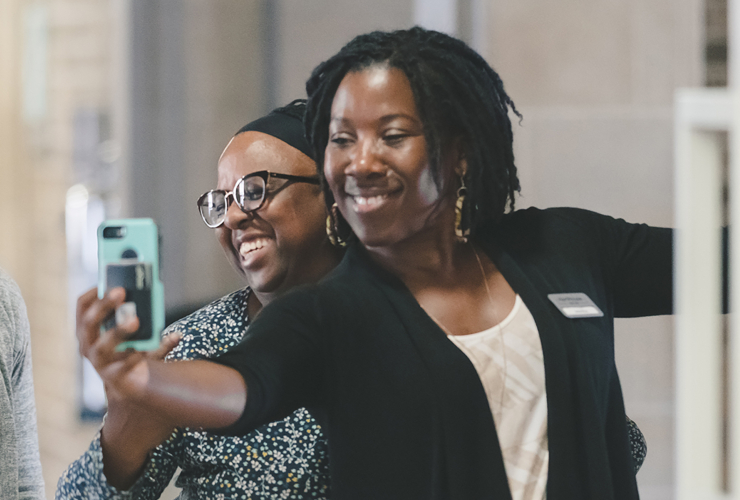Once, they were one among hundreds. Now, there are a couple dozen projects vying for the attention of policy-makers from Canada and Europe, including the one Nabeeha Pirzada and her teammates worked on for a year.
The young founders of BIPOC Capital are pushing for Ottawa to allocate funds to an interest-free loan program for small- and medium-sized businesses owned by Black, Indigenous and other people of colour (BIPOC), plus mentorship and other support to help them thrive.
“The next step for us is to keep pushing, getting in touch with the right people, getting in touch with government officials” and collaborating with their mentors to work out how to make it happen, says Pirzada, one of the four team members who developed the pitch as part of the EU-funded Thinkathon project.
On Feb. 25, they and other top participants in the Thinkathon will get three or four minutes each in front of a virtual audience of fellow participants and as-yet-unnamed policy-makers from Canada and Europe to pitch condensed versions of their policy and program recommendations.
“The idea of the event is to give a voice to some of our winning participants,” said Antoine Rayroux, the Thinkathon's political outreach co-ordinator in Canada.

He and his counterpart in Europe will then present a summary of issues raised by the 18- to 30-year-olds whom the project asked to engage with issues they care about — from racism and health to climate change, gender equality and education. They expect attending policy-makers to provide feedback.
The program hosted two in-person collaborations — in Brussels and Montreal, and then in Edmonton and Milan — before being forced online due to the COVID-19 pandemic.
Rayroux says the pandemic meant “we've lost some things in the process,” such as the intimacy and meaningful connection created during a 24-hour on-site gathering, but the virtual shift has allowed for a much broader reach, helping them to carry the message “with more echo and weight.”
In any case, he says the impact of the project will be difficult to measure and likely not immediate.
“What we’re betting on,” he said, “is that if you can have those conversations, then maybe at some point this MP or this local councillor — maybe in six months, one year or two years from now — will have on their table a consultation, a new policy issue, and they will remember bits of these conversations.”

Pirzada and her team’s pitch involved creating a web and app-based process for BIPOC businesses to apply for loans and attract corporate sponsorship and, in return, offer their own expertise. She says a major corporation could choose to sponsor a workshop from a smaller BIPOC-owned business about a more sustainable supply chain they had developed, for example, or any number of other innovations or niche solutions they have developed.
She notes that while non-white people account for one-third of the Canadian population, they make up less than 15 per cent of its small business community, often due to the recurring challenge of acquiring capital and drawing in value.
Her team's proposed Digital BIPOC Entrepreneurship Program would seek to address the lack of accessible funding for BIPOC small and medium-sized businesses through digital microfinancing of loans as small as $5,000 and access to online mentorship to facilitate business growth.
“There’s a lot of room to grow, to bring community together, to provide economic tools as a way of empowerment, which the Canadian government could totally do,” she said.
The team's mentor, Moussa Sene from project and engineering consultancy Hatch, has connected them with four sources in the non-profit industry, and they have meetings scheduled for this week and next to keep developing their plan to create the mentoring and microfinancing framework the government would need.
Pirzada was convinced to get involved with the Thinkathon challenge by teammate Tasmin Jaisee, an old friend she’d known since elementary school who now lives in Saskatoon.
“She reached out to me and was like, ‘Hey, there’s this awesome competition happening, I think you and I could do something good,’ and I was like, ‘I'm totally down, this is right up our alley.”
She describes the whole experience as surreal, from working on a passion project with teammates until 4 a.m. to presenting it to powerful people.
“It is nerve-racking, but there's also a lot of gratitude and a lot of excitement that comes with it as well,” she said. “You get to voice and vocalize a problem or something that can be fixed, and they’re actually going to listen to you, and not many people get that privilege.”
Morgan Sharp / Local Journalism Initiative / Canada’s National Observer






Comments